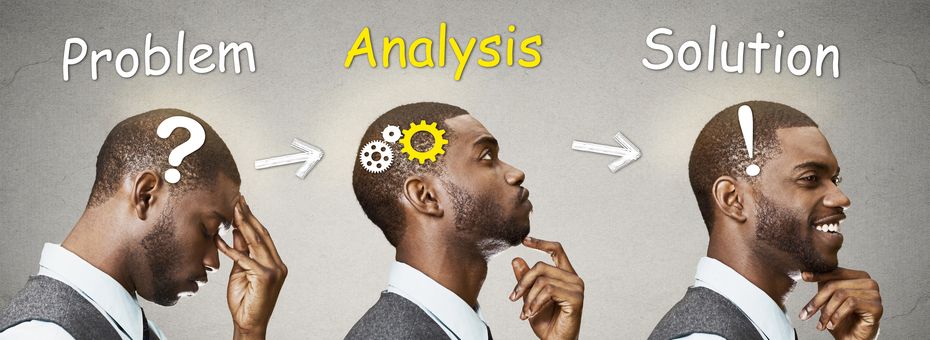Lately I’ve been spending a lot of time thinking about the fundamental tenet of lean leadership – the concept of leader as coach – and how to develop problem solving skills in others.
A key theme I’ve seen emerge in my interactions with healthcare leaders this past month, including 1-1 coaching sessions and workshops focused on the topic of coaching, is the challenge of figuring out how to get out of the personal habit of “fixing” the immediate problem at hand, telling someone what we think they should do, and replacing it with the habit of developing others to solve the problem.
Margie Hagene, a great lean thinker and coach, made a comment at a recent coaching class hosted by the ThedaCare Center for Healthcare Value summing up this problem: “With the habit of telling rather than asking, you miss the ability to grow a culture of problem solving.”
In healthcare, so often it feels like every issue is a crisis that must be solved NOW. This crisis mindset seems to have wired people to “just get it fixed” and move on to the next “crisis” of the day. Indeed, there are true crises or critical issues that must be addressed immediately, such as safety and quality issues that require us to “stop the line”. These things do happen and need immediate intervention. But, if as leaders we treat every issue as something needing an immediate “solution” provided by us (the leader), we will only continue to exacerbate the complexity of healthcare by layering on more band-aid fixes or workarounds. Sometimes we even end up causing more harm, particularly if we operate under assumptions, don’t understand the root cause of the problem, or miss the opportunity to develop problem-solving skills in others.
For example, does the linen shortage on the nursing units or long queue at the pharmacy require our immediate intervention? If yes and we need to put in a “quick fix”, are we taking the time to go back to understand the root cause and respond more thoughtfully? If two problems of the same relative level of importance or very different levels of importance are happening at the same time, how do we decide which to address first? How are we using the human capital in our organizations to help understand and solve these problems? How do we decide when to trade-off a people development opportunity for the seemingly easier path of providing the answer?
In the moment, it can feel easier and quicker to “fix and move on,” but what these leaders are beginning to realize for themselves (through reflection via a personal A3) is that unless they intentionally reset their mindset and actively practice asking questions to support problem solving in others – they will continue repeating habits that aren’t helpful. They’ll continue on in their current state of working on everyone’s problems, firefighting, and feeling like there is no time. No time in general, let alone time to be in the gemba, to coach, or work on the most pressing problems they own.
This thinking doesn’t just apply to operational leaders, but also to those of us with the role of “coach” or “consultant”. As I reflect on my own experiences as an internal lean consultant and now as an external coach to healthcare organizations, the same mentality holds true. There is a role for me as a resource in lean thinking, giving guidance on technical aspects of lean processes and mindset (the directive instruction zone), but the most effective help I can offer is showing up as coach (open coaching zone) to develop others’ thinking. The goal is to let others keep their ownership of their work challenges and learning journey.
I’m continually trying to develop as a coach – to be better at asking my clients questions to develop their thinking and capability, not just telling them what I (in the role of “expert”) think might be useful. I try to lead with open-ended questions of pure, humble inquiry (as defined by Edgar Schein) – questions to which I don’t have the answer. For example, “How are you thinking about this issue today?” or another “How/Why/What?” question that is relevant to the discussion at hand. I encourage them to be just as intentional about developing their own team members through coaching.
As leader or coach, how are you intentionally practicing to improve yourself? How do you actually practice asking rather than telling? What practices and questions do you use and how are you developing yourself in service to develop others?
Managing to Learn
An Introduction to A3 Leadership and Problem-Solving.






